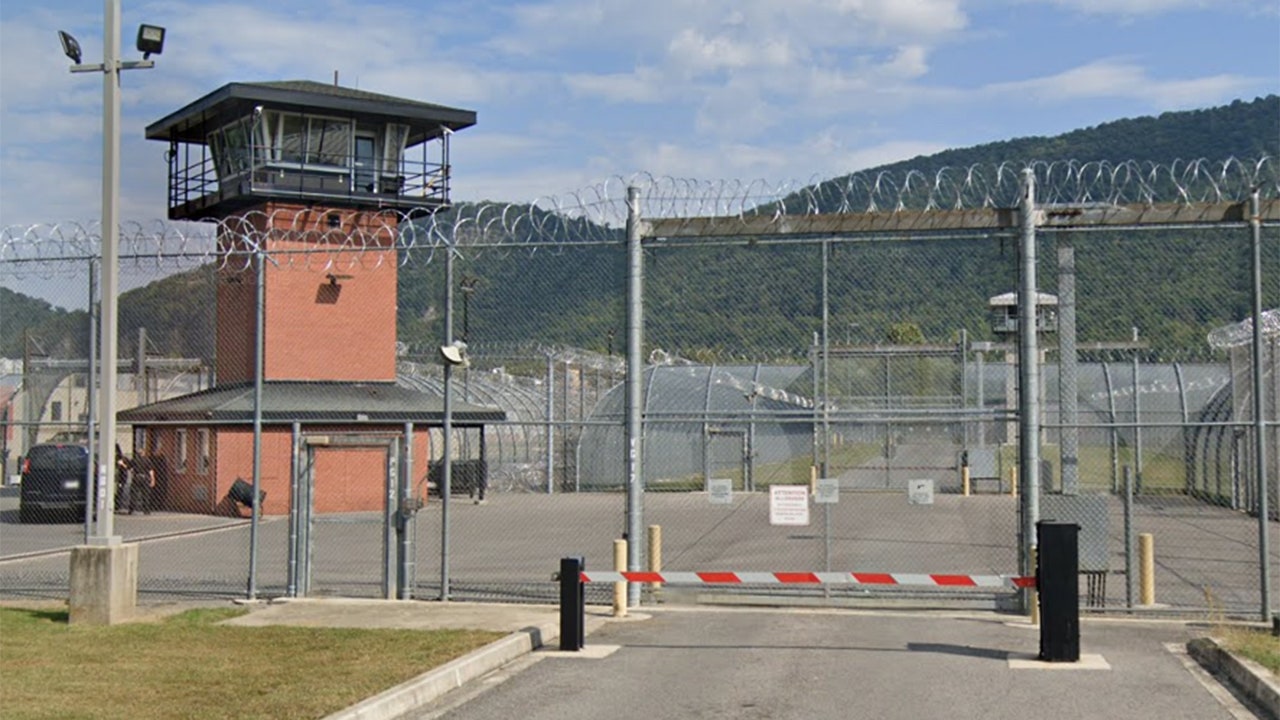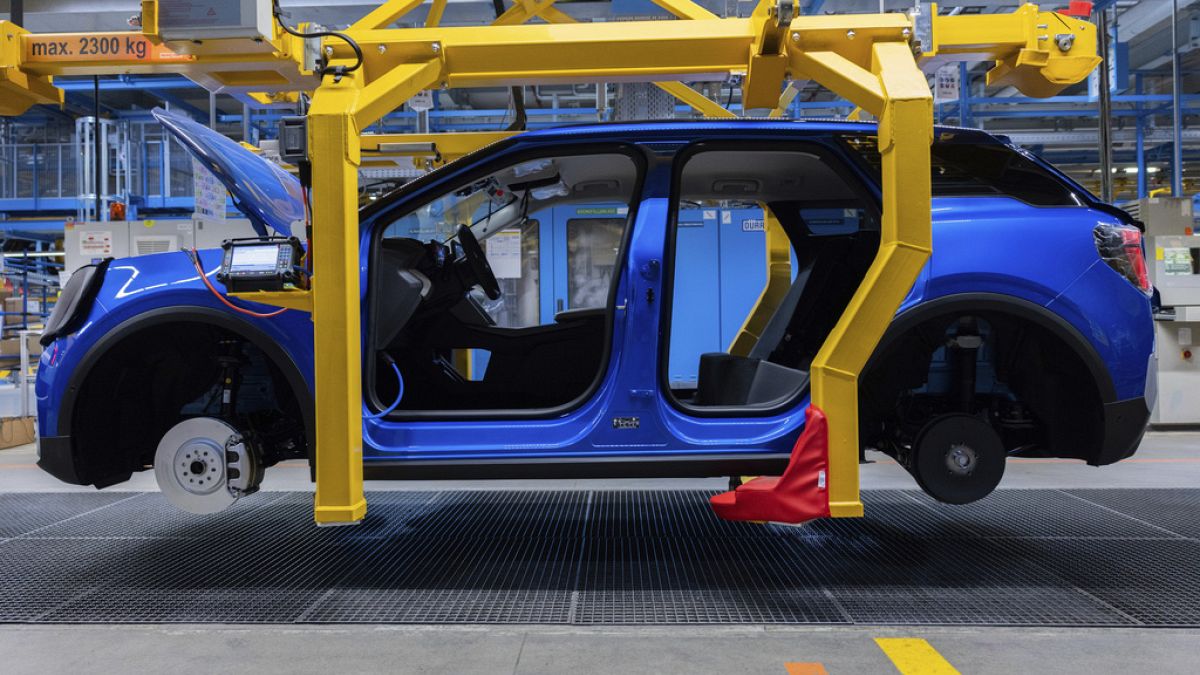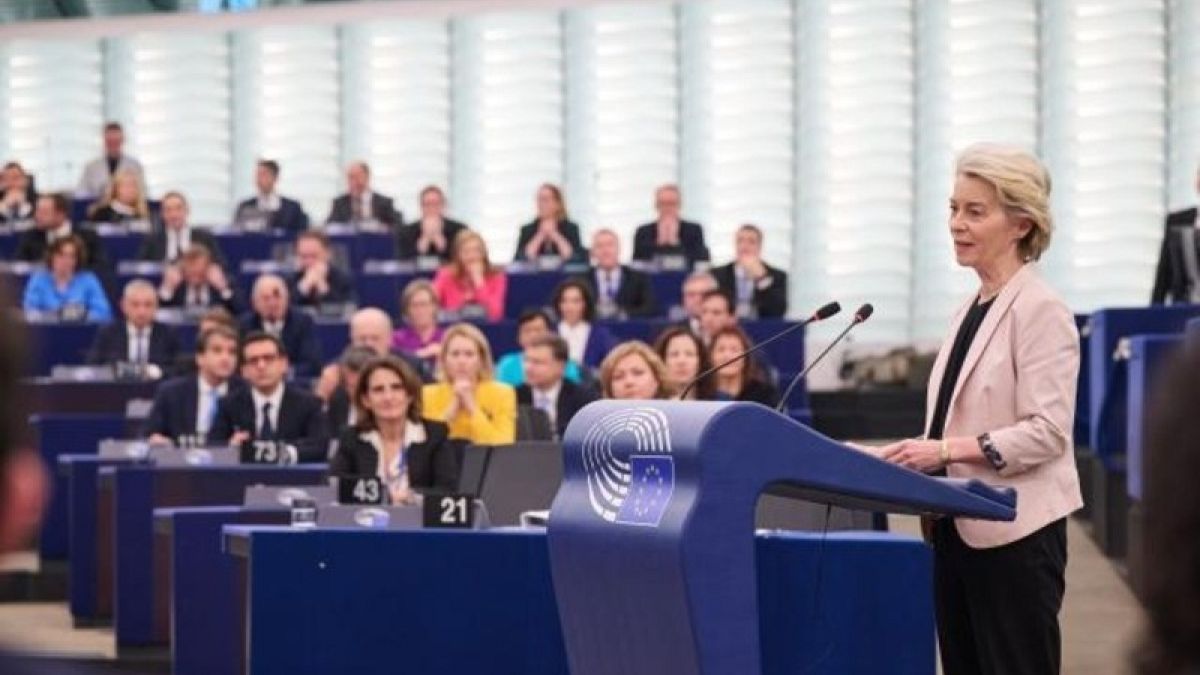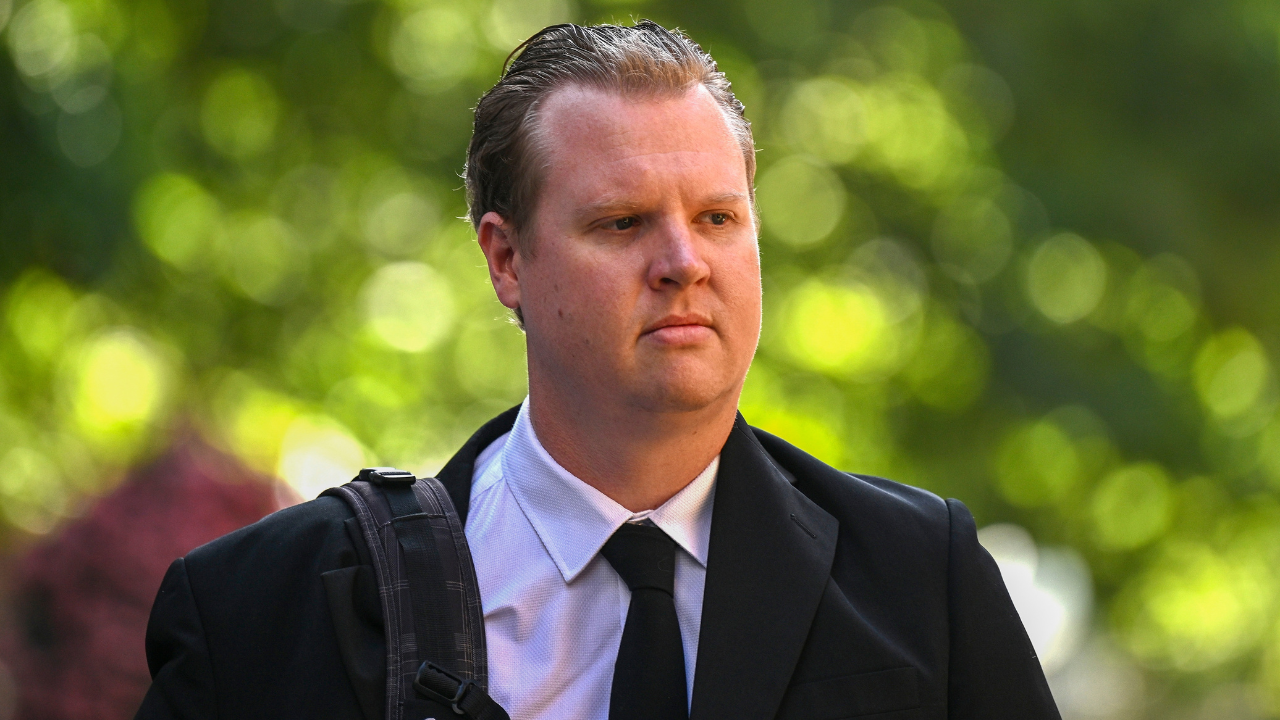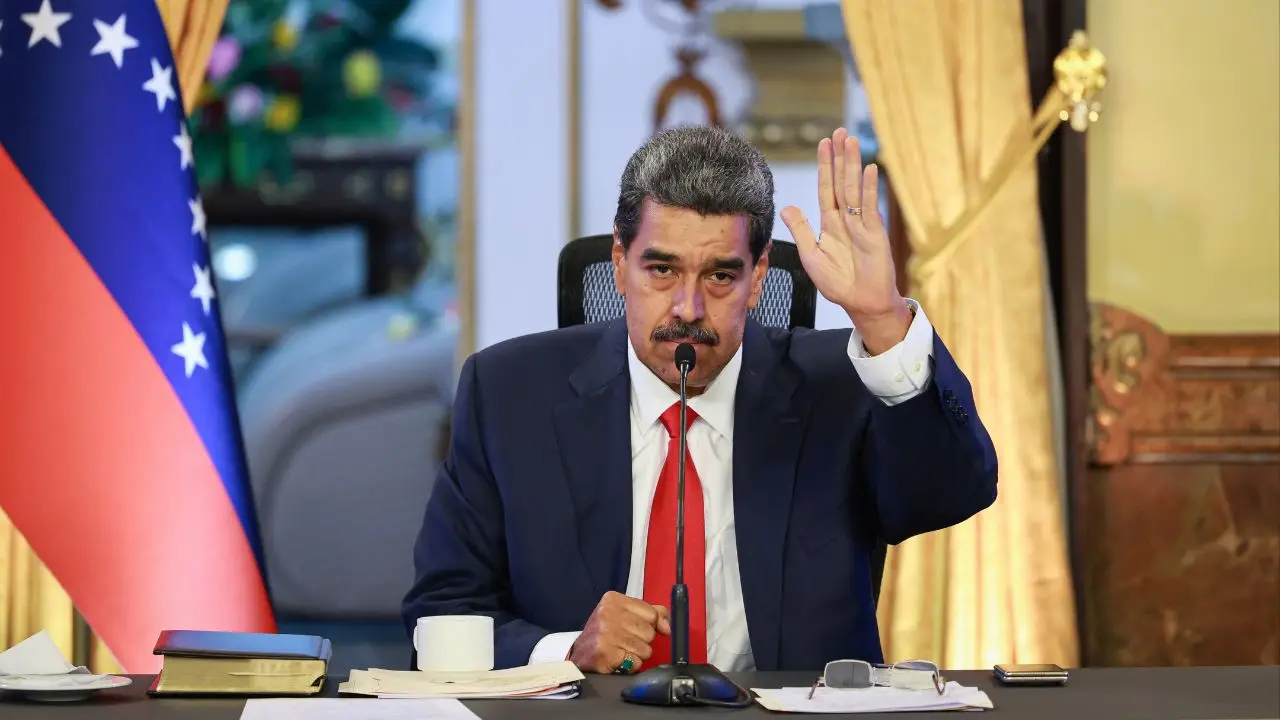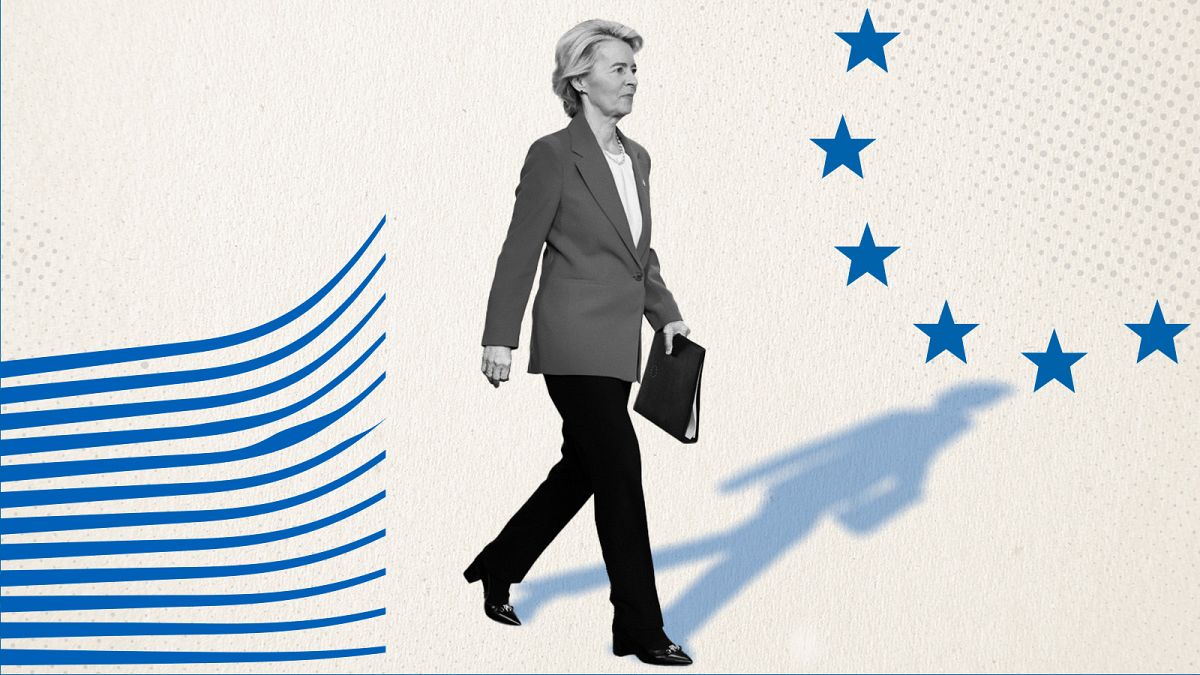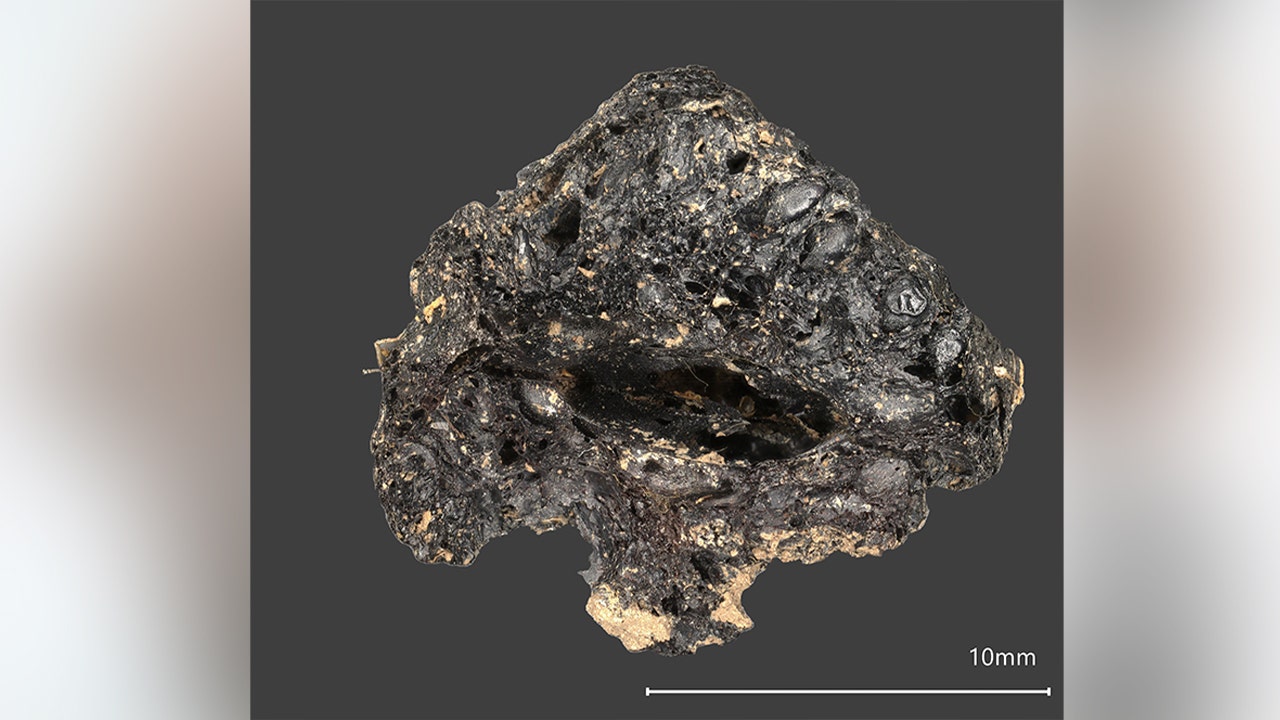Italy and Poland are among seven EU member states that have aligned with the car industry and its call for a delay to stricter CO2 emissions standards.
A group of governments are calling for an urgent rethink of tightening vehicle emissions standards as carmakers double down on their claim that climate environmental policy poses an existential threat to the automotive industry.
As ministers gather in Brussels today to discuss Europe’s competitiveness, Italy is presenting a joint proposal with Austria, Bulgaria, Czechia. Italy, Poland, Romania and Slovakia calling for a planned review of CO2 emissions standards to be brought forward ahead of a compliance deadline at the end of 2025.
The automotive industry is at “a critical juncture, facing significant challenges related to production, employment, and global competition, which require urgent and coordinated action at the EU level”, they wrote in a discussion paper seen by Euronews.
“An assessment of the CO2 emission standards for new passenger cars and new light commercial vehicles Regulation is therefore urgently needed to maintain the competitiveness of the European automotive industry and to prevent the outflow of investment from green technology research and development,” the joint paper runs.
The seven governments also call for a review of potential fines faced by carmakers who have failed to align their annual production with stricter emissions standards that take effect next year, warning fines could “severely limit the ability of the industry to reinvest in innovation and development” and thus impact Europe’s competitiveness.
They point to warnings from the European Automobile Manufacturers’ Association (ACEA), which has warned of potentially ruinous multi-billion-euro fines due to a dip in electric car sales, which means the average emissions of their annual car sales is set to be higher than the legal maximum, which is set to drop from 115.1 grammes per kilometre to 93.6g next year.
WIDGET: Why are carmakers pleading for a respite from EU climate policy? | Euronews
The European Commission has so far resisted the call, suggesting that carmakers have had years to prepare for the tighter emissions limit, and still have time to comply. Notable by their absence from the backers of the joint proposal are the EU’s three biggest car producing countries Germany, France and Spain.
Von der Leyen takes charge
However, addressing the European Parliament on Wednesday (27 November), president Ursula von der Leyen said she would launch a “strategic dialogue on the future of the car industry in Europe”, bringing together all stakeholders as the sector goes through a “a deep and disruptive transition”.
“The dialogue and its follow-up will be under my leadership,” said von der Leyen, whose second Commission is due to take office on 1 December.
The electricity industry has accused carmakers of bringing their current dilemma upon themselves by prioritising sales of larger and expensive electric models costing around €40,000 while “encouraging consumers to purchase their cheaper hybrid and ICE [internal combustion engine] models”.
The emissions limit is set to fall stepwise to zero by 2030, which amounts to a de facto ban on petrol and diesel models. The joint proposal calls for “technological neutrality” in EU law that would allow the continued sale of internal combustion engine cars providing they are intended to run on low-carbon synthetic fuels.
ACEA urged EU member states on Tuesday (26 November) to ease “compliance costs” as the clock ticks on the end-2025 deadline.
“Manufacturers alone are bearing the burden of a transformation hindered by factors beyond their control, like inadequate charging infrastructure and insufficient purchase incentives,” ACEA director general Sigrid de Vries said.
But Julia Poliscanova, an e-mobility specialist at the campaign group Transport & Environment, is sceptical about the usefulness of alternative fuels.
“Not only will they be three times more costly than today’s petrol and divert the volumes from aviation and shipping decarbonisation, but they will also put Europe’s battery and EV factories, and our entire clean tech leadership, on the line as oil lobbyists and their friends fight to prolong their business,” Poliscanova told Euronews.
“The EV models to comply with the 2025 target are planned but have not rolled off production lines yet,” she added. “If policymakers stay firm, European consumers will benefit from excellent affordable offerings next year uplifting the EU electric car market to new highs.”
Government ministers at the EU Council summit were due to adopt conclusions on Europe’s future competitiveness – a follow-up to a recent report from former European Central Bank president Mario Draghi – with a view to influencing the work of the new European Commission.
Read the full article here




